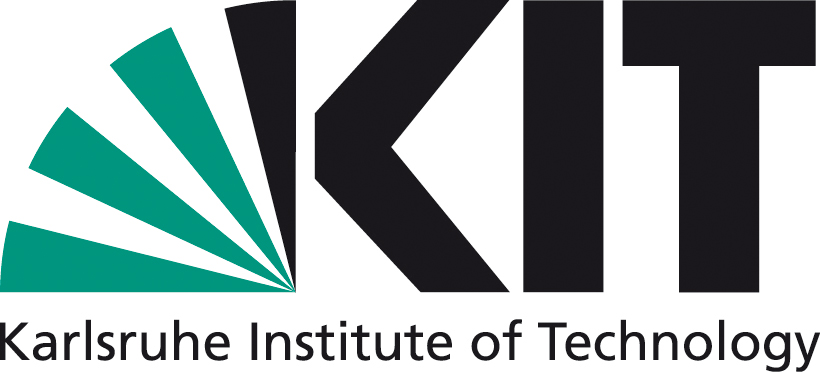Is this technology or can it be thrown away?
About the reversibility of technologies
DOI:
https://doi.org/10.14512/tatup.30.1.63Keywords:
philosophy of technology, system theory, reversible technology, error friendlinessAbstract
Reversible technologies are those that can be taken back, i.e., they can be switched off, dismantled, and, if necessary, replaced by existing new technologies. Irreversible technologies are a burden. A typology of take back or reversibility is developed and discussed on the basis of irreversible technologies. It is proposed to include reversibility as a value criterion for technology assessment. Some considerations on the design of reversible technologies are presented.References
acatech – Deutsche Akademie der Technikwissenschaften (Hg.) (2014): Resilien-Tech. Resilience-by-Design: Strategie für die technologischen Zukunftsthemen. Online verfügbar unter https://www.acatech.de/publikation/resilien-tech-resilience-by-design-strategie-fuer-die-technologischen-zukunftsthemen/, zuletzt geprüft am 20. 11. 2020.
Aldag, Ramon (2020): Toxic waste. In: Encyclopaedia Britannica. Online verfügbar unter https://www.britannica.com/science/toxic-waste, zuletzt geprüft am 20. 11. 2020.
Behringer, John (2002): Releasing genetically modified organisms. Will any harm outweigh any advantage? In: Journal for Applied Ecology 37 (2), S. 207–214.
Bergen, Jan (2016a): Reversibility and nuclear energy production technologies. A framework and three cases. In: Ethics, Policy & Environment 19, S. 37–59.
Bergen, Jan (2016b): Reversible experiments. Putting geological disposal to the test. Sci Eng Ethics 22, S. 707–733.
Berger, Peter; Luckmann, Thomas (2003): Die gesellschaftliche Konstruktion der Wirklichkeit. Frankfurt am Main: Fischer TB.
Borland, John (2008): Analyzing the internet collapse. In: MIT Technology Review, 05. 02. 2008. Online verfügbar unter https://www.technologyreview.com/2008/02/05/222155/analyzing-the-internet-collapse/, zuletzt geprüft am 20. 11. 2020.
Chulkov, Dmitriy (2018): On the role of switching costs and decision reversibility in information technology adoption and investment. In: Journal of Information Systems and Technology Management 14 (3), S. 309–321.
CEID – Circular Economy Initiative Deutschland; acatech – Deutsche Akademie der Technikwissenschaften (Hg.) (2020): Ressourcenschonende Batteriekreisläufe. Mit Circular Economy die Elektromobilität antreiben. Acatech: München.
EIB – European Investment Bank (2020): The EIB circular economy guide. Supporting the circular transition. Online verfügbar unter https://www.eib.org/attachments/thematic/circular_economy_guide_en.pdf, zuletzt geprüft am 20. 11. 2020.
Frank, Michael (2017): The future of computing depends on making it reversible. In: IEEE Spectrum, 25. 08. 2017. Online verfügbar unter https://spectrum.ieee.org/computing/hardware/the-future-of-computing-depends-on-making-it-reversible, zuletzt geprüft am 20. 11. 2020.
Gaycken, Sandro (2012): Cyberwar. Das Wettrüsten hat längst schon begonnen. Vom digitalen Angriff zum realen Ausnahmezustand. München: Goldmann.
Grieger, Sven (1998): Recyclinggerechte Produktgestaltung. In: Gerhard Pahl (Hg.): Prof. Dr. -Ing. Wolfgang Beitz zum Gedenken. Heidelberg: Springer, S. 133–140.
Hüttl, Reinhard; Klem, Doris; Weber, Edwin (Hg.) (1999): Rekultivierung von Bergbaufolgelandschaften. Berlin: De Gruyter.
Hwang, Ann (2002): Semiconductors have hidden costs. In: Worldwatch Institute (Hg.): Vital Signs. New York: W. W. Norton & Company, S. 110–111.
Kimberly, John (1981): Managerial innovation. In: Paul Nystrom und William Starbuck (Hg.), Handbook of Organisational Design. Oxford: Oxford University Press, S. 84–104.
Kornwachs, Klaus (2000): Das Prinzip der Bedingungserhaltung. Münster: Lit.
Kornwachs, Klaus (2012): Strukturen technologischen Wissens. Berlin: Edition Sigma.
Kornwachs, Klaus; Niemeier, Joachim (1991): Technikbewertung und Technikpotentialabschätzung bei kleineren und mittleren Unternehmen. In: Hans-Jörg Bullinger (Hg.): Handbuch des Informationsmanagements im Unternehmen. München: C. H. Beck, S. 1524–1569.
Leopoldina – Nationale Akademie der Wissenschaften; acatech – Deutsche Akademie der Technikwissenschaften; Union der deutschen Akademien der Wissenschaften (Hg.) (2020): Zentrale und dezentrale Elemente im Energiesystem. Der richtige Mix für eine stabile und nachhaltige Versorgung. Online verfügbar unter https://www.acatech.de/wp-content/uploads/2020/01/ESYS_Stellungnahme_zentral_dezentral.pdf, zuletzt geprüft am 20. 11. 2020.
Noto Recycling (2020): International dismantling information system. Last updated 16. 12. 2020. Online verfügbar unter https://www.notorecycling.us/facilitate/idis-international-dismantling-information-system.html, zuletzt geprüft am 04. 05. 2021.
Pols, Auke; Romijn, Henny (2017): Evaluating irreversible social harms. In: Policy Science 50, S. 495–518.
Ritchie, Hannah; Roser, Max (2018): Plastic pollution. Online verfügbar unter https://ourworldindata.org/plastic-pollution#all-charts-preview, zuletzt geprüft am 20. 11. 2020.
Roco, Mihail; Bainbridge, William; Tonn, Bruce; Whitesides, George (Hg.) (2013): Convergence of knowledge, technology and society. Cham: Springer.
Ropohl, Günter (2009): Allgemeine Technologie. Eine Systemtheorie der Technik. Karlsruhe: Universitätsverlag Karlsruhe.
Schlönhardt, Frank (2008): Weitgehend bordautonome Verkehrsführung von Flugzeugen als mögliche Perspektive der Luftfahrt. In: Ingo Matuschek (Hg.): Luft-Schichten. Arbeit, Organisation und Technik im Luftverkehr. Berlin: edition sigma, S. 227–238.
Stokes, Hedley et al. (2017): Status of the iso space debris mitigation standards. In: Tim Flohrer und Friederike Schmitz (Hg.): Proceedings of the 7th European conference on space debris, Darmstadt, Germany, 18.–21. 04. 2017. Online verfügbar unter https://conference.sdo.esoc.esa.int/proceedings/sdc7/paper/979/SDC7-paper979.pdf, zuletzt geprüft am 20. 11. 2020.
Trevelyan, James (1998): Landmines. A humanitarian demining approach. In: Asia-Pacific Magazine 11, S. 42–46.
VDI – Verein Deutscher Ingenieure (1991): Technikbewertung. Begriffe und Grundlagen. Erläuterungen und Hinweise zu VDI Richtlinie 3780. Düsseldorf: VDI.
VDI (2000): VDI-Richtlinie 2243, Blatt 1. Recyclingorientierte Produktentwicklung. Zurückgezogen (Juli 2002). Düsseldorf: VDI.
Weber, Thomas; Stuchtey, Martin (Hg.) (2019): Pathways towards a German circular economy. Lessons from European strategies (Preliminary study). München: acatech. Online verfügbar unter https://www.acatech.de/publikation/deutschland-auf-dem-weg-zur-circular-economy/download-pdf?lang=en, zuletzt geprüft am 20. 11. 2020.
Weizsäcker, Christine; Weizsäcker, Ernst (1984): Fehlerfreundlichkeit. In: Klaus Kornwachs (Hg.): Offenheit – Zeitlichkeit – Komplxität. Zur Theorie der Offenen Systeme. Frankfurt am Main: Campus, S. 167–201.
Wikipedia (2020): Nuclear decommissioning. Online verfügbar unter https://en.wikipedia.org/wiki/Nuclear_decommissioning, zuletzt geprüft am 03. 12. 2020.
Downloads
Published
Versions
- 31.03.2021 (2)
- 31.03.2021 (1)
How to Cite
Issue
Section
License
Copyright (c) 2021 Klaus Kornwachs

This work is licensed under a Creative Commons Attribution 4.0 International License.








